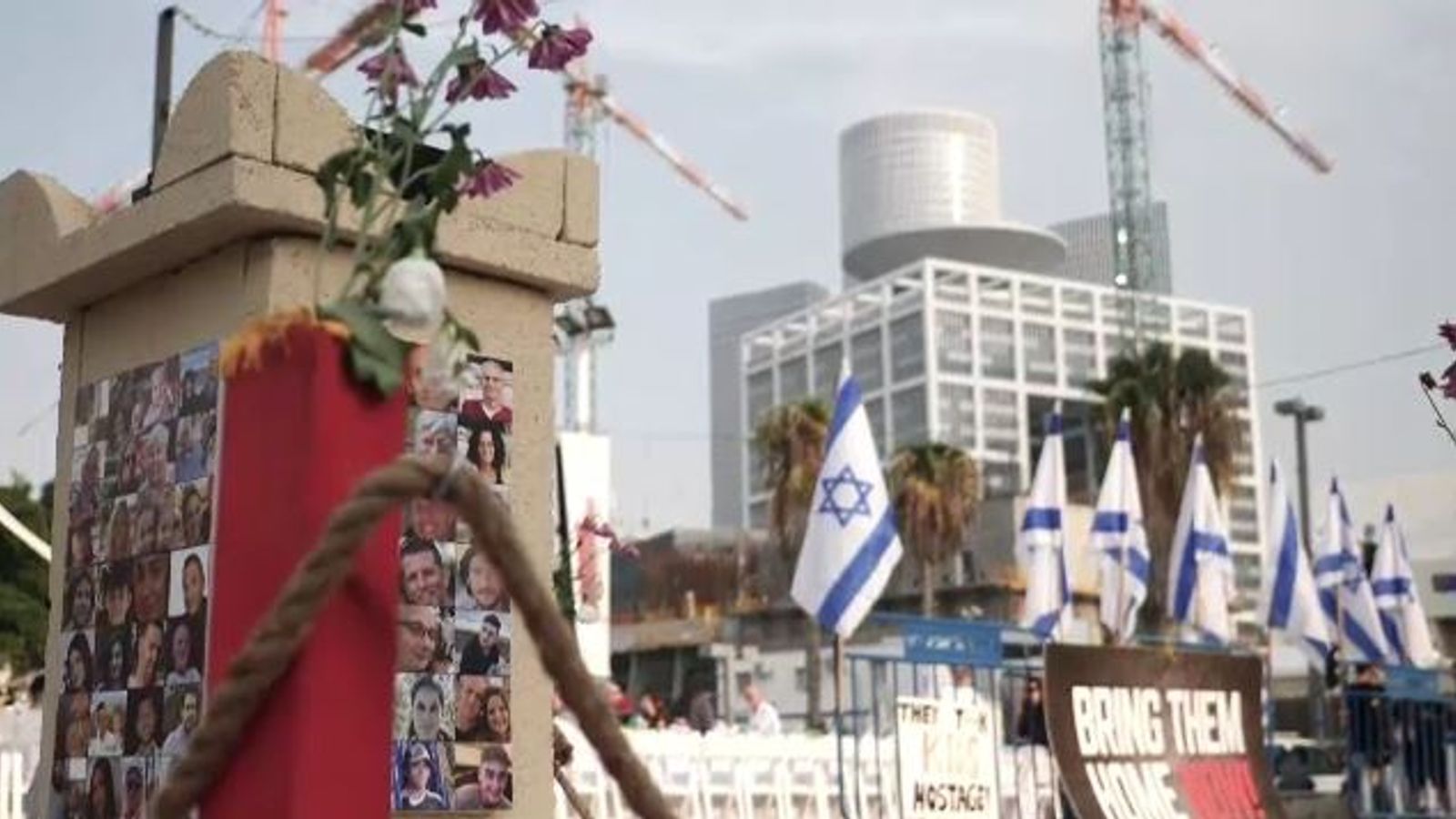In full sight of Israel’s Ministry of Defence, whose responsibility it is to get the hostages back safely, a permanent vigil is held on a plaza in Tel Aviv.
Posters of the captives are stuck on walls and lampposts. The same smiling images are printed on T-shirts worn by the friends and relatives of the missing.
For every face on every poster there is a family left wondering and worrying when or if they will see each other again.
Latest as Israeli military chief says ‘soldiers now operating in Gaza’
How’s the last three weeks been for you? I asked Ayelet Samerano, the mother of one of the hostages. “No life. No sleeping, no drinking, no eating, nothing. There is no life.”
This is a national crisis, every bit as much as the attacks on 7 October were a national tragedy. 229 people have been held in Gaza for three weeks and with no word of whether they’re still alive.
They are young and old, soldiers and civilians, Israelis and foreigners and many, like the uncle of Eden Zecharya, hold all of Gaza responsible for their absence.
“Why are they still holding on to children? That’s the only question that should be asked at this point of time,” he said.
“Why are you holding them? You want humanitarian aid, you want water to Gaza, you want electricity, so release them. That’s it. Simple.
“Tomorrow you’ll get everything back, electricity, everything. Then we will discuss what we are doing, how we are, you know, taking care of Hamas.”
Read more:
‘Destroying Hamas’ is a catchy soundbite but it’s not a practical objective
Despite rumours in recent days of a possible breakthrough in negotiations to release some hostages, there are now reports that Israel thinks Hamas are stringing them along and have run out of patience.
Rather than condemning the bombing campaign and pushing for diplomacy, many hold faith in Israel’s military to find and free their loved ones.
Just rescuing the hostages would be a challenge enough in itself, though.
Doing so, while at the same time trying to eliminate Hamas, will be something much greater and much harder than anything Israel has ever tried to do before.
Their future is far from certain.









